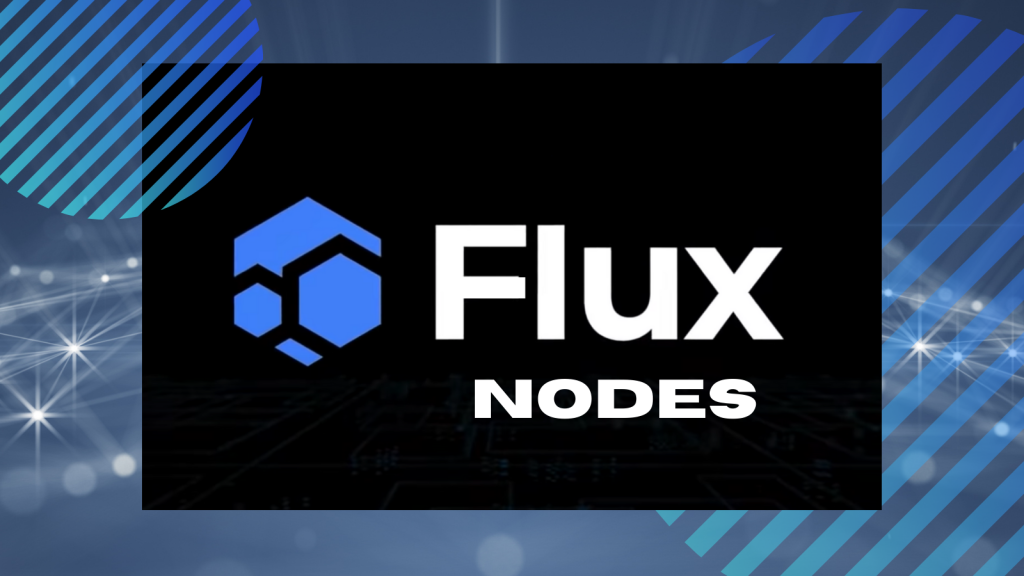Flux is half way thru its first halving and launching new programs to grow operating Flux nodes even more rapidly. It has more programs in the works to make running nodes easier and more profitable. They are building the infrastructure of Web3.0 with individuals from around the world for a truly decentralized internet. Flux’s aim is to be a truly decentralized infrastructure for Web3.0 and they are gaining ground.

Flux has had a busy and successful March – it reached 5000 nodes! They are going thru a halving. It is ramping up the expansion of nodes in the Flux ecosystem and increasing their capacity for partnerships in the Flux Labs. A new project is soon to be rolled out that will further amplify the growth rate of operating nodes. It will allow individuals to run up to eight nodes from a single IP address. On a live YT stream, co-founder Daniel Keller along with Valter Silva and Jeremy Anderson announced that the first phase of Flux halving is complete. The next two halving phases are on schedule and launching soon.
Related: https://fluxhighway.com/flux-halving-pushes-kadena-node-change-for-faster-updating-and-response/
Flux has reached 5000 plus active nodes in their community that spans the globe. It has happened faster than they thought. There are three tiers to Flux nodes, a 10,000, 25,000 and 100,000 collateral levels. The halving on the first tier, named Commulas, is now at 1,000 collateral. The halvings are taking place in a week’s span and concurrently. There is a two week grace period to move over to new system. The phases are staggered with a week in between each. The next level is Nimbus with 12,500 and then Stratus with 40,000 collateral.

Walter Silva, the lead customer support person, stated that it is easy to install and run a Flux node for someone with basic IT skills. The major challenge is often that people are more accustomed to using MAC or Windows. Flux nodes run under Linnex because it is the most stable operating system. Most big businesses run on Linnex.
It is often questioned as to why there are no options to use other systems. Flux, however, is building an enterprise level infrastructure that needs a reliable, scalable, and well developed operating system to function well. Linnux provides this for the Flux ecosystem.
With many detailed guides on Medium.com and YT videos on how to set up and run nodes, the Flux team share how to run nodes Beginners do need to read official guides before asking for one on one help. Valter also encourages newbies to be fearless and to execute the steps as they go thru the guides.
The team is looking to make it accessible to all who wish to run a Flux node(s) at home. With that said, he states that Flux is not a Linnux school. A Flux node operator has the role of being a decentralized system administrator. It is not a ‘one-click’ deployment node system. It is hard work and may not be for everyone. It has been incentivized accordingly, though
If one does not know Linnex, and is not willing to independently educate one’s self on it, then it is not advisable to start now. Flux will one day have a way to work with those who are in this category.

Titan, a new project, will be rolling out in a few weeks. This new feature is very important – a ‘big deal’ Keller stated. Being a Flux node operator is a legitimate job. It is one that some are quitting their day jobs to do full time. Nodes require attending to and monitoring their operation. Titan will allow those who can not leave their day jobs, to be a part of Flux’s Web3 future. They will be able to contribute and be rewarded. It also make it easier to set up nodes.
Titan is a shared node project. What makes it different is it has a more secure address schema. Instead of one private key to send Flux for a private address, it will require multiple keys out of a pool of keys. This will eliminate the possibility of private keys being lost or misplaced. All the nodes will be running with this soon.
Flux is pushing for decentralization in its ecosystem. Titan is a way to allow people to participate in tech ecosystem and not be exposed to risk of keeping it on a centralized exchange.
Some people are running multiple nodes from home. With Titan, it will be possible to run eight nodes from one IP address. Why eight? This is to eliminate ‘farms’ with Flux, which would lead to a less decentralized system. Flux will be incentivized and rewarding individuals who run the max number of nodes – who run ‘bare metal’ at home.
Flux rebranded just one year ago. Their halving of the three ties levels of nodes is about half way complete and going well. They have just launched Operation Jetpack, which enables seamless deployments on the Flux ecosystem for developers. It is driven by a very developed community and growing daily. Flux’s goal is to be the backbone of projects and technologies building the essential parts of Web3 – the infrastructure of a truly decentralized internet.
Although the material contained in this website was prepared based on information from public and private sources that Fluxhighway.com believes to be reliable, no representation, warranty or undertaking, stated or implied, is given as to the accuracy of the information contained herein, and Fluxhighway.com expressly disclaims any liability for the accuracy and completeness of the information contained in this website.
Via this site: https://www.youtube.com/watch?v=8PHqRUcT6-g&t=991s

